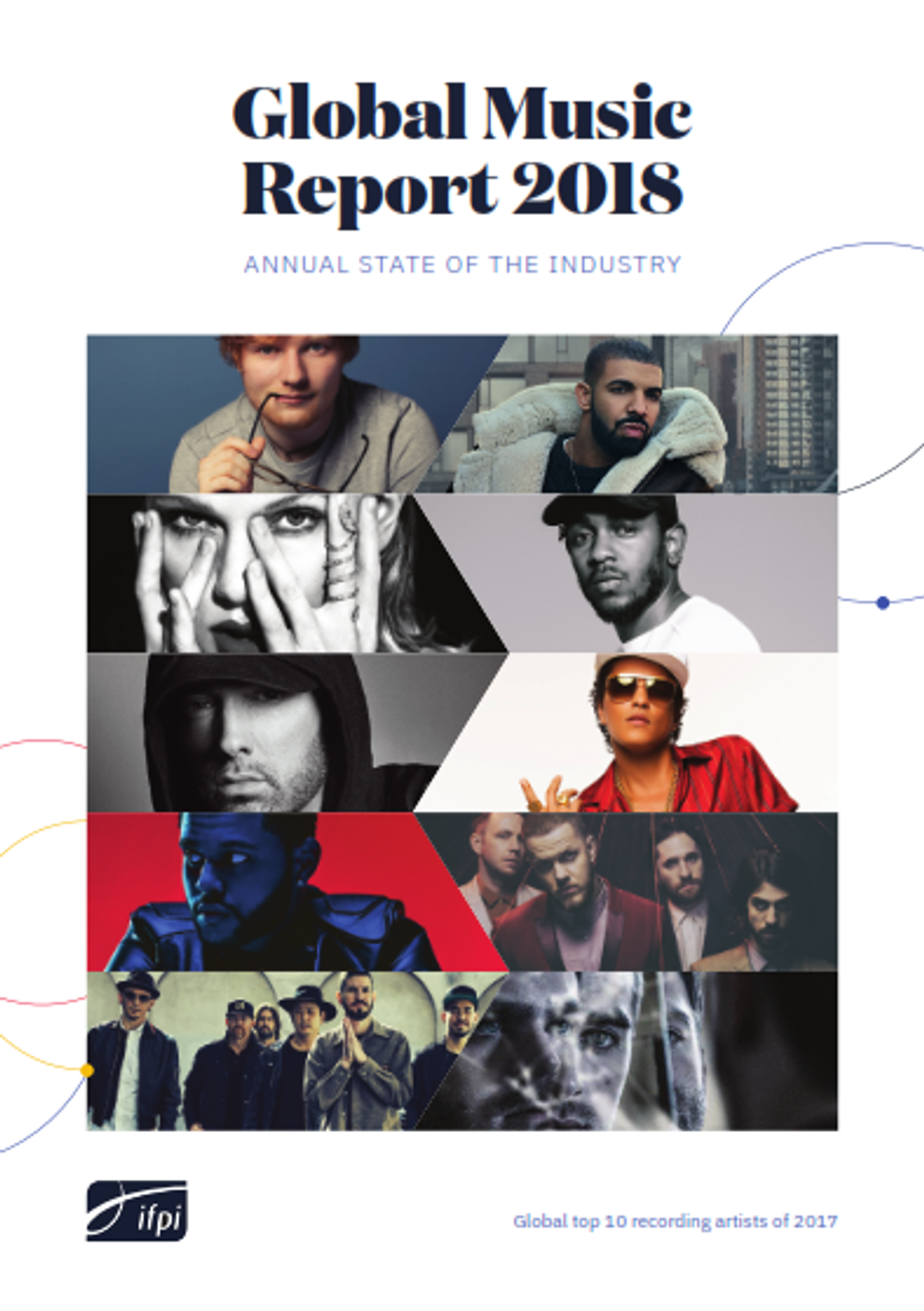Global Recorded Music Sales Reached US$17.3B Last Year
The International Federation of the Phonographic Industry (IFPI) has released its annual statistical analysis of the recorded music market worldwide, bullishly noting that 2017 marked the third consecutive year of growth for the pre-recorded music market following 15 years of revenue decline.

By External Source
The International Federation of the Phonographic Industry (IFPI) has released its annual statistical analysis of the recorded music market worldwide, bullishly noting that 2017 marked the third consecutive year of growth for the pre-recorded music market following 15 years of revenue decline.
According to the IFPI Global Music Market Report 2018, the worldwide recorded music market grew by 8.1% in 2017, with total revenues for 2017 pegged at US$17.3 billion.
Streaming remains the primary driver of recovering revenues and, for the first time, has become the single most significant revenue source with 176 million users of paid streaming services contributing to the year-on-year streaming growth of 41.1%. Streaming now accounts for 38.4% of total recorded music revenue and its growth has more than offset a 5.4% decline in physical revenue and a 20.5% decline in download revenue. Total digital income last year accounted for more than half of all revenue (54%) for the first time.
The industry's third consecutive year of growth follows 15 years of significant revenue decline. Despite the recent uplift, revenues for 2017 are still only 68.4% of the market's peak in 1999.
Frances Moore, chief executive, IFPI, commented: "It's been another incredibly exciting year for music. The work and investment from record companies are enabling diverse artists to break through to fans around the world, soundtracking their lives and bringing them increasingly rich and immersive ways to enjoy the music they love.
"The industry is on a positive path of recovery, but it's very clear that the race is far from won." Moore explained: "Record companies are continuing in their efforts to put the industry back onto a stable path and, to that end, we are continuing our campaign to fix the value gap. This is not just essential for music to thrive in today’s global market, but to create the right – fair – environment for it to do so in the future."
Record companies are working to fuel this recent return to growth, driven by their ongoing investment, not only in artists but also in the digital innovations that are enriching the experience of music fans all over the world.
Beyond their efforts to nurture and break artists, record companies have also worked to foster growth in developing markets and have invested in the systems to deliver, manage and track the global distribution of music. Their partnerships are creating engaging ways for fans to access music on multiple services and platforms. This contributed to Latin American revenues growing by 17.7% and Asia and Australasia increasing by 5.4%.
Record companies remain dedicated to ensuring full and fair value is returned for music as it is consumed in its many different forms around the world. Crucially, this involves finding a legislative solution to the value gap, the mismatch between the value created by some digital platforms from their use of music and what they pay to those creating and investing in it.
Key figures for 2017
Global revenue growth: +8.1%
Digital share of global revenues: 54%
advertisementDigital revenue growth: +19.1%
Growth in streaming revenues: +41.1%
Physical revenues: -5.4%
Download revenue: -20.5%
Further summary details can be found here, and the full report can be purchased online here.

















